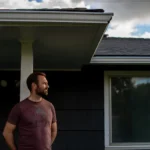
HHS guts the teams that fulfill public records requests for health agencies
April 3, 2025
Utah Ex-Therapist Scott Owen Sentenced to Prison for Sexually Abusing Patients
April 3, 2025As Myanmar remains shaken by last week’s devastating earthquake, which has claimed more than 3,000 lives, a lack of connectivity is proving to be an obstacle to relief and rescue work.
Htaike Htaike Aung, a leading digital rights advocate, is monitoring the situation in the most-affected areas. Myanmar’s Sagaing region, the quake’s epicenter and a battleground between the military and resistance forces, remains under a strict communications blockade. She’s working to mobilize international pressure on the junta to restore access and allow aid and rescue efforts to move forward.
In 2024, Myanmar saw more internet shutdowns than any other country, with 85 documented cases, according to digital rights group Access Now.
Aung is the executive director of Myanmar Internet Project, an advocacy group documenting internet shutdowns in the country following the 2021 military coup. On March 31, together with over 120 signatories, including local and international rights groups, the Myanmar Internet Project published a joint statement calling on the junta to lift restrictions on internet services, including social media platforms and news media websites.
She spoke to Rest of World on April 1, a day before the junta announced a temporary ceasefire, a truce called as a humanitarian gesture toward earthquake survivors.
This interview has been edited for length and clarity.
Have you seen action from the military junta to restore internet access?
The military junta is not responding to the crisis in a timely manner while there are preventable deaths. It would be ideal if the telecom operators could push out more crisis response infrastructures. I don’t think that these telecom operators are responding to the crisis fast enough.
The military is also not allowing the media to report about the earthquake openly and freely. The military continues to carry out bombings and airstrikes despite the earthquake and the ongoing crisis. At the same time, people can’t communicate and alert each other about what’s happening.
So how are people mobilizing rescue and aid efforts without the internet?
We have lots of groups setting up fundraisers and matching the fundraisers with trusted networks. We are also opening up fundraising to accept cryptocurrencies. This fundraising and coordination is done mostly by the communities outside of Myanmar.
But with no internet, it’s difficult to disperse funds and money on the ground. There are journalists and citizens sending footage and groups coordinating on the ground efforts. But it’s also crucial that rescue workers and the communities on the ground have access to proper communications and internet infrastructures, as it is key for collaboration and coordination of efforts.
Are people who use the internet to collect donations in Myanmar in danger?
Yes. This is why the coordination is being done. Throughout the coup, there were a lot of cases where people got detained or had their bank accounts shut down because their transactions were suspected to be in support of the resistance.
What about alternative communication channels like Starlink?
We assume that the information from affected regions is coming from this kind of alternative communications infrastructure and by a very traditional method of just people from Sagaing traveling to a nearby town or city where the internet is still available. They share news with the outside world, communicate with the media, and things like that.
Starlink is officially not available in Myanmar. Some community groups may have access to Starlink. But we heard that when people are trying to use Starlink in this setting, the military or the soldiers come to confiscate the kits. So even though people might have access to Starlink, they can’t necessarily use it in this situation because it’s not legal in Myanmar.
As for traditional phone networks, Myanmar is a mobile-first country, so we don’t have strong landline access.
What is your message for the international community to draw attention to the ongoing internet crisis?
Internet shutdowns are a matter of life and death during this time of crisis. A lot of the deaths are preventable when people have access to information and have access to the internet.
This happened during the 2023 cyclone Mocha in western Myanmar, which affected a smaller region. We pushed the international communities, particularly the humanitarian aid organizations, to pressure the military to reopen the internet, but the military didn’t restore it.
This earthquake is the worst in Myanmar’s history, and the military should restore the internet. If they don’t do that, they have to take full accountability for their actions. We would like the international community to continue to pressure the military junta to open up the internet restrictions and support emergency connectivity solutions.
#Myanmars #internet #blackout #costing #lives #earthquakehit #areas
Thanks to the Team @ Rest of World – Source link & Great Job Lam Le





